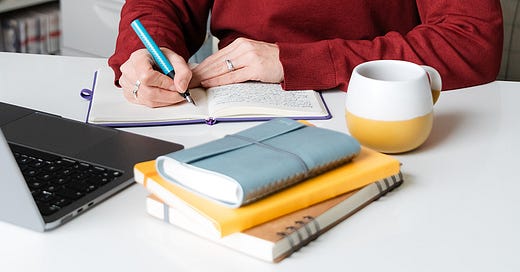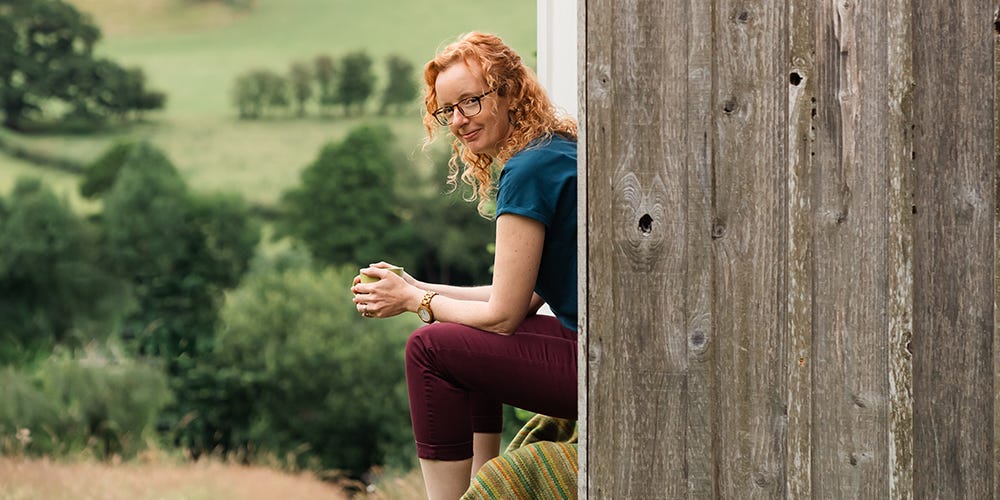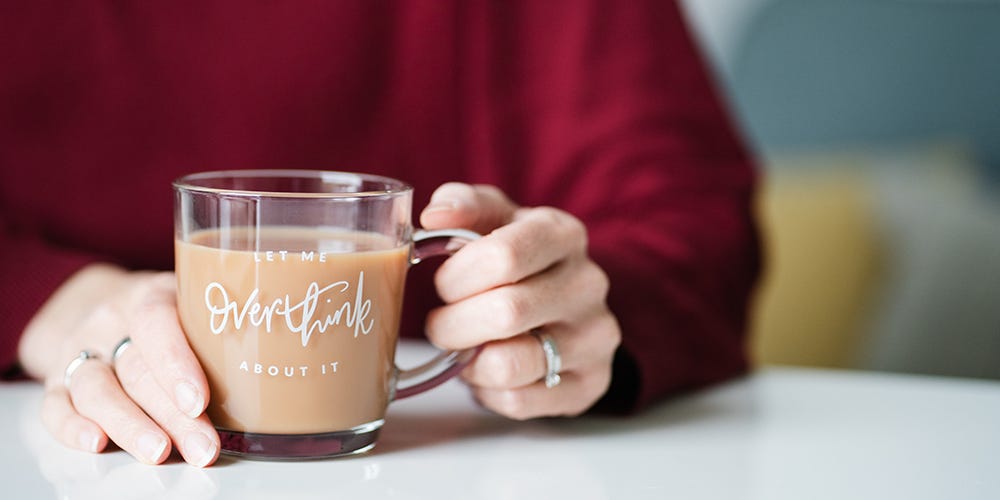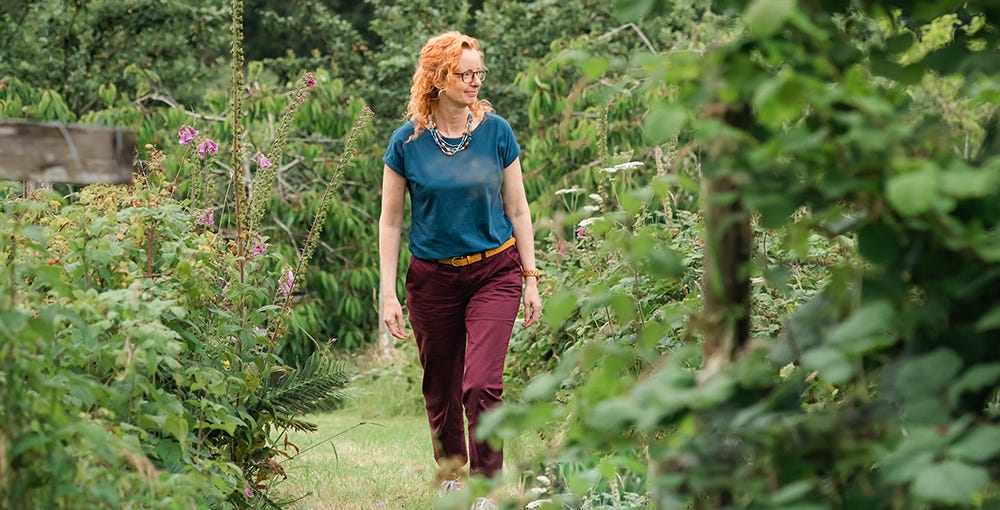10 ways I manage my ADHD
AKA various things I’ve been doing to help with daily ADHD challenges before and since discovering my ADHD.
Are you a part of The Quiet ADHD Club?
It’s an online space where introverted, sensitive, empathetic women who have, or think they might have, ADHD can find understanding, guidance, support and connection. If you want to discover how to work with your brain (rather than fight it) and connect with other women who just get it, the Quiet ADHD Club is for you. Find out more and join here, I made it especially for you.
When it really began to sink in that, unknowingly, I’d been living with ADHD for 48 years I started to look at how I’d been managing my life, and my ADHD, without knowing it.
I started a list called ‘Reverse engineering my life to figure out what I’ve been doing to manage my ADHD all these years without knowing it’. Does what it says on the tin, right?*
I considered well-known challenges of ADHD like forgetting or losing things, impulsive reactions, and procrastinating and looked at what I had been doing to mitigate them. Any time I noticed or thought of something I jotted it down. I thought I’d share a few of them with you, along with a couple I’ve put into practice since my ADHD discovery.
So, in no particular order, here are a few of the actions and strategies that help me to manage everyday ADHD challenges:
I pair chores that I find incredibly tedious, like washing the dishes or cleaning the bathroom, with a favourite podcast so that I can focus my attention on enjoying what I’m listening to rather than how much I don’t want to be doing what I’m doing. To get me over the hump of procrastination I only allow myself to listen to these podcasts when I’m doing the dreaded chores so if I don’t do them I don’t get to listen! And I really want to listen.
Another chore I’d put off doing was vacuuming, not just because it was boring but because lugging around our heavy vacuum cleaner, unplugging and plugging it in, negotiating the cord, made it feel like even harder work. We already had a handheld vacuum cleaner so I bought a cheap extension which meant I could use it on floors.
Using a cordless, lightweight tool instead of a cumbersome one has made vacuuming SO much easier and therefore more doable. Plus, as I can only clean as long as the battery lasts I challenge myself to get as much of the house done as possible before the battery conks out. Gamifying works…If gamifying works for app developers to hook us into our phones, why not make use of it to do the things we want or need?
Important dates like birthdays are in my digital calendar, which both my husband and I can see so it’s not solely my responsibility to remember them. They’re set to repeat so they automatically appear in the calendar each year and I have alerts set up to remind me they’re coming up.
I also have a tick list in the Notes app on my phone so I can tick off when I’ve sent a card/present as I often forget if I’ve done it or not.Even though I’ve had a lifelong love affair with stationery (so much so I ran my own stationery business for seven years) I’ve finally accepted that the best place for me to jot down ideas is my phone Notes app. Only using notebooks to write down ideas means too many get lost because if I don’t have the notebook to hand they vanish out of my brain.
It feels sadly practical and unromantic but forgetting something I wanted to remember because I didn’t write it down is too, too frustrating. Plus I can dictate into Notes and it transcribes as I speak, super handy when my thoughts are coming faster than I can type.
Rest assured I still use notebooks for journalling, with my beloved fountain pen and teal coloured ink.On that theme, a notepad sits on my desk and if a thought comes to me when I’m working on something else – I don’t want to get distracted by it but I also don’t want to lose it – I jot it down on my distraction pad. I’ve captured the thought so I don’t have to try to remember it and it hasn’t derailed whatever I was focusing on.
Where possible my belongings have a specific home. For example, my bag lives on the coat hook by the front door and inside my bag lives my purse, keys and sunglasses (I know, I’m optimistic in winter in the UK but also: light sensitivity). When I leave the house I take the bag because it has everything and when I return home the first thing I do is put the bag on its hook. If I ever need to take those items out of my bag I return them straight away because if I don’t then I’ll have no idea where they are!
If there’s something I need to remember to do or use I put it out on a surface where I can see it (again, where possible). For example, if my calendar tells me my HRT patch needs changing tomorrow, I get it out of the drawer and put it by the bathroom sink where I can see it. Or if I need to take something out with me I put it by my bag by the front door.
At this point in writing I knew there was something I wanted to share that I thought of a moment ago but didn’t make a note of and now I’ve forgotten it. Strategies help but no strategy is totally ADHD-proof!
If I feel myself about to react instantly or impulsively to something or someone, particularly if my rejection sensitivity has been activated, I physically move myself away from that place. For example, if it’s an email that’s upset or angered me I step away from the laptop and wait until I feel calmer before I reply.
Same with any impulse purchases – I save the item in the shopping basket, hide the webpage and then put down my phone or move away from the laptop for a few minutes to disrupt the urge to buy, and tell myself I can complete the purchase tomorrow if I still think it’s a good idea.When I find myself getting irritated or downright cross with myself for forgetting or being indecisive or making a mistake or doing one of many ADHD-related things, and the mean inner voice is revving up, I stop. I address my brain as Addy (more on this here) to create space between the annoyance and myself and swap the berating self-talk for some kind, understanding and encouraging words. Feels a whole lot better than kicking myself when I’m down.
In fact, I think the most important and helpful action is reminding myself that what I’m feeling or thinking or doing that I find challenging doesn’t make me rubbish or wrong or failing or not enough or too much. It’s due to my brain being wired differently to how some other people’s brains are wired. And it’s because society decided how a brain should operate and to function differently to that isn’t considered ‘typical’ that I’m finding things difficult.
Self-compassion makes a big, big difference. More than any other strategy or tool or workaround. Don’t underestimate and do get used to practising it. You’ll be glad you did.
Do you employ strategies like these? What do you find helps, even a little bit, with everyday ADHD challenges? I’d love to hear about them in the comments below.
Until next time,
* There was a very successful advertising campaign in the 1990s in the UK for Ronseal, a brand of woodstain, all about how the tin’s content ‘does what it says on the tin’. The phrase has become an idiom to describe something that accurately lives up to its name.
I have availability to work with new one-to-one coaching clients. You can click here to find out about how coaching can support you to work with your ADHD, embrace your nature and your strengths, and thrive in a calm and joyful life of your design.
Whether you’re just beginning to recognise potential ADHD traits in yourself or you’re on a long waitlist for an assessment or you’ve had this self-knowledge for a while, it can be a LOT to process as you look back on how your life has been and look ahead to want you do with this information.
Go gently, you’re not alone, we’re in this together.
You may also enjoy reading…
Photos by Andrea Gilpin.
Supporting quiet, introverted, sensitive, empathetic, late-discovered ADHD women find self-acceptance and understanding, as well as calm and joyful freedom to be their unique, beautiful selves.










Do I do any of these? How about, ALL of them! I never identified with some aspects of potentially having ADHD, because I wasn't always losing things or misplacing them. But I've realized it's because I have built these systems and practice overtime. Mainly because of years of mindfulness practices, I starting slowing down and noticing certain patterns and behaviors and began implementing new behaviors. So it also explains why I can get so annoyed when other members of my household "mess" with my things or my way of organizing things in my home because it discombobulates me, and disrupts my system!
I found this super helpful! Thanks Gabrielle!